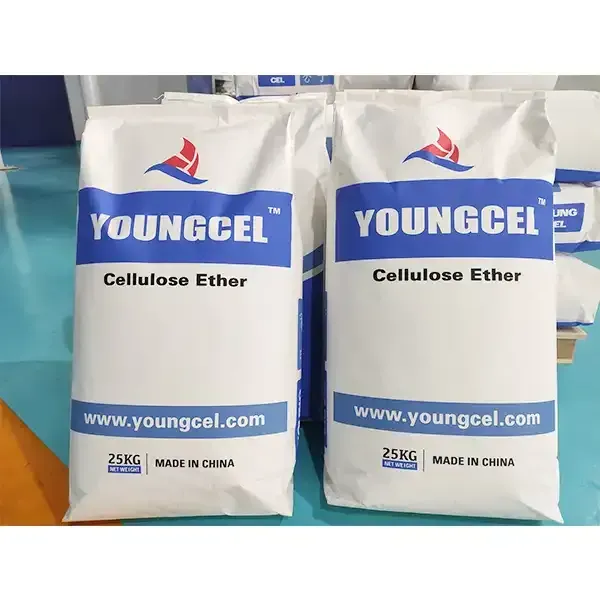Hydroxypropyl Methyl Cellulose (HPMC) An Overview
Hydroxypropyl methyl cellulose (HPMC) is a non-ionic cellulose ether, derived from natural cellulose. It has gained significant attention in various industries due to its versatile properties and applications. With its unique combination of mechanistic and physical characteristics, HPMC has become an indispensable material in fields such as pharmaceuticals, food, construction, personal care, and many others.
Chemical Structure and Properties
HPMC is synthesized by the etherification of cellulose, a natural polymer found in the cell walls of plants. The process involves replacing some of the hydroxyl groups in the cellulose molecule with hydroxypropyl and methyl groups. This modification enhances the solubility, stability, and functionality of cellulose, leading to diverse applications.
The resulting product is a white to off-white powder that is odorless, tasteless, and has excellent water-solubility properties at different temperatures. HPMC is known for its high viscosity, film-forming ability, and capability to modify texture and consistency in formulations. Furthermore, it is thermally stable, making it less prone to degradation at elevated temperatures.
Applications of HPMC
1. Pharmaceutical Industry HPMC plays a crucial role in the pharmaceutical sector. It is commonly employed as an excipient in the formulation of tablets and capsules. Due to its ability to control drug release, HPMC is widely used in sustained-release formulations. It acts as a binder, helping to maintain the integrity of tablets and influencing the release profile of the active ingredients. Additionally, HPMC is utilized in the production of ophthalmic solutions, where its viscosity properties aid in enhancing the comfort and effectiveness of eye drops.
2. Food Industry In the food industry, HPMC is used as a thickening agent, emulsifier, and stabilizer. It helps to improve texture and mouthfeel in various food products, including sauces, dressings, and dairy products. Furthermore, HPMC is popular in gluten-free formulations as it mimics the texture provided by gluten, enhancing the quality of products such as bread and pasta. Its ability to retain moisture also contributes to the shelf life and overall quality of food items.
hydroxypropyl methyl cellulose hpmc

3. Construction Industry HPMC is extensively used in construction materials, particularly in cementitious and tile adhesive formulations. It enhances workability, water retention, and adhesion properties, improving the application ease and durability of construction materials. The water-retaining capability of HPMC helps prevent cracking and ensures consistent performance during the curing process.
4. Personal Care Products The cosmetics and personal care sector benefits from the use of HPMC in products like lotions, creams, and gels. Its ability to stabilize emulsions and thicken formulations makes it a valuable ingredient in skincare products. Additionally, HPMC acts as a film-forming agent in hair care products, providing hold and structure to hair styling products.
5. Agricultural Applications HPMC is utilized in the agricultural sector for controlled-release fertilizers and soil conditioners. It aids in moisture retention in soil, improving plant growth and health. Its biodegradable nature also aligns with the growing eco-conscious practices in agriculture.
Safety and Regulatory Status
HPMC is generally recognized as safe (GRAS) by the U.S. Food and Drug Administration (FDA) and is approved for use in various applications. Its non-toxic and non-irritating nature makes it suitable for sensitive formulations, particularly in pharmaceuticals and personal care products. However, it is essential for manufacturers to adhere to the recommended guidelines and concentrations to ensure safety and efficacy.
Conclusion
Hydroxypropyl methyl cellulose is a multifunctional polymer with broad applications across various industries. Its unique properties, including water-solubility, viscosity, and film-forming abilities, make it a valuable ingredient in pharmaceuticals, food, construction, and personal care products. As industries continue to evolve, the demand for HPMC is expected to grow, driven by ongoing innovations and the quest for sustainable and effective solutions. With a favorable safety profile and versatile applications, HPMC is poised to remain a key player in industrial formulations for years to come.
-
Rdp that The Revolutionary Polymer Powder Transforming Modern Construction MaterialsNewsAug.11,2025
-
Hpmc Powder that Versatile Additive for Detergents and Personal CareNewsAug.11,2025
-
Hpmc Hydroxypropyl Methylcellulose that Essential Building Material Additive from Shijiazhuang Gaocheng YongfengNewsAug.11,2025
-
Hydroxypropyl Methyl Cellulos Hpmc that Essential for Construction ApplicationsNewsAug.11,2025
-
Mhec Powder that Revolutionizing Construction Chemistry with Cellulose Ether SolutionsNewsAug.11,2025
-
Industri Hpmc that The Global Backbone of Advanced ConstructionNewsAug.11,2025




